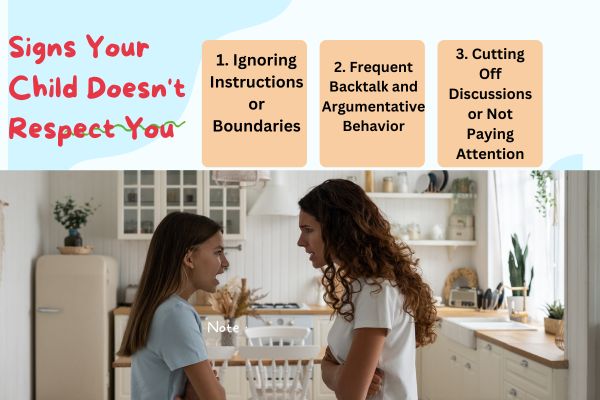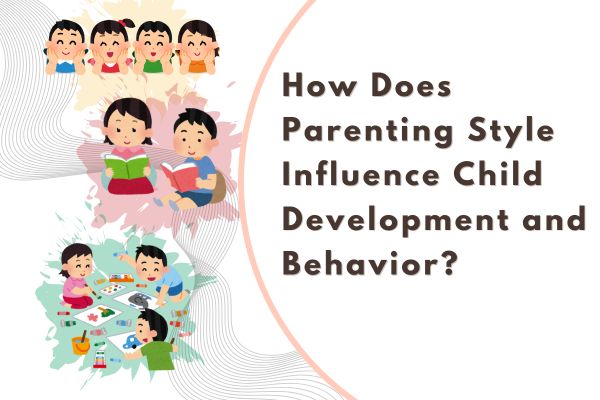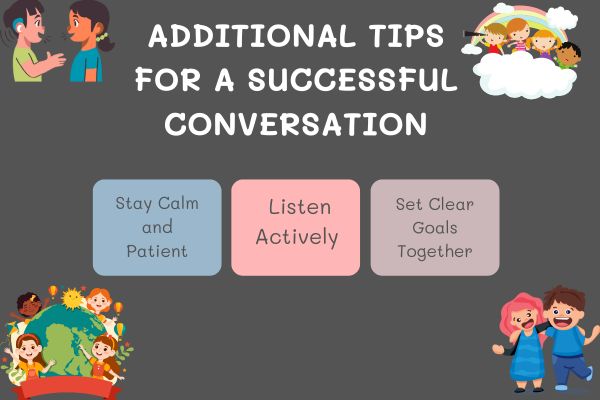It can feel sensitive and complicated to talk to a parent about their child’s problematic behavior. But managing it with consideration, compassion, and a planned strategy can have a significant impact. This guide offers a comprehensive approach to how to talk to a parent about their child’s behavior in a way that fosters understanding and collaboration.
- Why Approach a Parent About Their Child's Behavior?
- Signs Your Child Doesn't Respect You
- Step-by-Step Guide: Talking to Parents About Their Child’s Behavior Examples and Tips
- How Do Parents Influence Their Child's Behavior?
- How Does Parenting Style Influence Child Development and Behavior?
- Additional Tips for a Successful Conversation
- Closing thoughts
- Frequently Asked Questions about how to talk to a parent about their child's behavior
Why Approach a Parent About Their Child’s Behavior?

One duty that frequently calls for action is spotting indications that a child is having difficulties or acting out. Aggression, contempt, and defiance are examples of behaviors that can worsen if they are not addressed. A safer, more encouraging atmosphere for all kids can be achieved by knowing how to tell a parent their child is disrespectful
or exhibiting difficult behavior.
Since parents might not be aware of their child’s behavior outside the house, your comments may provide insightful information that enables them to ask for help when necessary.
Signs Your Child Doesn’t Respect You

Respect is a fundamental component of healthy relationships between children and adults. Here are some common signs that may indicate a child is not showing respect, and how to address them.
1. Ignoring Instructions or Boundaries
A lack of respect may be evident if a child routinely ignores what their parents or other authority figures say. For example, it may indicate a boundary issue if you ask someone to do something and they aggressively refuse or ignore you.
2. Frequent Backtalk and Argumentative Behavior
A youngster may be pushing boundaries if they react to adults in an impolite or combative manner. Parents can address the problem early by identifying such habits and having productive conversations about them.
3. Cutting Off Discussions or Not Paying Attention
Youngsters who frequently cut off discussions or don’t listen could be having trouble with self-control or respect. Positive improvements can be promoted by pointing out these habits and providing parents with techniques to enhance their listening abilities.
Step-by-Step Guide: Talking to Parents About Their Child’s Behavior Examples and Tips

How to Approach a Parent About Their Child’s Behavior? Here are some examples and tips for yoy!
1. Prepare for the Conversation
Before you approach a parent, it’s important to prepare what you’ll say. Here’s how:
Obtain Information:
Ensure that you have concrete instances of the child’s conduct. Steer clear of rumors and concentrate on your own observations.
Play a role:
Speaking with a friend or coworker beforehand can help you remain composed and calm throughout the actual conversation.
Examine the viewpoint of the parent:
Be aware that parents could have different values, expectations, and experiences. You may approach the subject with empathy if you know how parents affect their children’s conduct.
2. Choose the Right Time and Place
Timing and location can make a significant difference in how the conversation goes. Here are tips for a productive setting:
Establish a Private Time:
Get in touch with the parent ahead of time and ask to meet privately. Steer clear of talking when they’re being picked up or dropped off because they can feel hurried.
Locate a Quiet, Calm Area:
Select a location free from distractions and where adults or other kids can’t overhear. The preservation of a respectful atmosphere depends on privacy.
3. Start the Discussion Empathically
Tension can be reduced by beginning the talk in a sympathetic and understanding way. Employ a cooperative strategy, like
Share Your Concerns with Care:
If appropriate, start off by complimenting the youngster. For example, “Your child is so creative and often brightens our day, but I’ve noticed some behaviors I’d like to discuss with you.”
4. Stick to the Facts and Be Specific
Parents respond better to clear, specific information. Avoid making broad statements like “Your child is disrespectful.” Instead, focus on concrete behaviors:
Describe What You Observed: For example, say, “I noticed that your child had difficulty sharing toys with other kids during playtime, and they became frustrated and raised their voice.”
Avoid Labels:
Instead of labeling the child as “disrespectful,” concentrate on behaviors that show your child doesn’t respect you, such as interrupting others or disobeying directions.
5. Work Toward Solutions Together
Present the conversation as a collaborative effort. Use a “we’re in this together” mindset to brainstorm ways to improve the child’s behavior:
Offer Resources:
Inform the parents if you have any resources or know of behavioral specialists. This can be particularly helpful if you’re talking about things like how parenting style affects a child’s behavior and development or if you believe treatment could be helpful.
Create a Plan Together:
Work with the parent to create a basic action plan. This might include establishing guidelines for behaviors or even scheduling check-ins to monitor the child’s progress.
6. Keep the Tone Supportive and Positive
No matter how challenging the conversation, try to maintain a constructive and supportive tone. Be sure to:
Acknowledge Positive Aspects:
Acknowledge the parent’s commitment to their child and their talents. “I can see how much you care about supporting your child’s development,” you might say.
Be patient:
It could take some time for parents to comprehend this information. Refrain from demanding a change or an instant response.
7. Follow Up
After the conversation, consider following up with the parent to show your support. A simple check-in can go a long way:
Express Appreciation:
Express gratitude to the parent for being receptive to the discussion. You may say, “I appreciate you taking the time to discuss these issues with me. Thank you for being so transparent.
Request an Update:
Inform them of your availability to carry on the discussion and assist their family.
How Do Parents Influence Their Child’s Behavior?

Parents play a central role in shaping their children’s behavior through their actions, values, and expectations. Here’s how parental influence manifests in a child’s behavior:
1. Modeling Behavior
Kids watch and mimic their parents. Children pick up on positive behaviors from their parents, such as empathy, patience, and polite speech. On the other hand, if parents are angry or frustrated a lot, kids could also pick up these traits.
2. Establishing Consistent Boundaries
Children learn what behaviors are appropriate when parents establish clear expectations and boundaries. For instance, teaching a youngster that hitting is inappropriate and pointing them in the direction of more constructive ways to vent their displeasure might help them better control their emotions.
3. Creating a Safe and Supportive Environment
Children are encouraged to explore their interests and feel free to express themselves in a safe and nurturing home atmosphere. A youngster is less likely to act out in an attempt to get attention or control when they feel emotionally supported.
How Does Parenting Style Influence Child Development and Behavior?

Children’s social, emotional, and behavioral development are all directly impacted by the interaction’s parents have with them. The four primary parenting philosophies and how they impact a child’s behavior are as follows:
1. Parenting with authority
Warmth and bounds are balanced by authoritative parents, who promote independence while upholding fair standards. Children brought up in this manner typically exhibit self-discipline, responsibility, and respect for authority.
2. Authoritarian Parenting
Authoritarian parenting places a strong emphasis on following rules and being obedient without showing much affection. Youngsters may obey out of fear, but they may also suffer from anger and low self-esteem. Children may resist against this strictness, which can occasionally result in behavioral problems.
3. Parenting with Permission
Although they are loving, permissive parents don’t put a lot of demands on their kids. Although this strengthens the bond between parents and children, it can also cause self-control issues because kids may not fully comprehend boundaries. They may misbehave in social or educational contexts in hopes of receiving the same indulgence.
4. Uninvolved Parenting
Due to other stressors or a lack of parenting experience, absentee parents frequently offer minimal support and affection. Due to a lack of emotional support and explicit behavioral supervision, children reared in this setting may experience social and academic difficulties.
Additional Tips for a Successful Conversation

Stay Calm and Patient: A gentle tone can prevent the parent from feeling defensive.
Listen Actively: Allow the parent to share their thoughts and respond with empathy.
Set Clear Goals Together: Let the parent know you’re on the same team and willing to support them every step of the way.
Closing thoughts
You will be prepared to manage delicate conversations with tact and efficiency if you adhere to this guide. How to talk to a parent about their child’s behavior involves understanding, sensitivity, and preparedness. By following these guidelines, parents and children can have a fruitful conversation and collaborate to bring about positive change.





